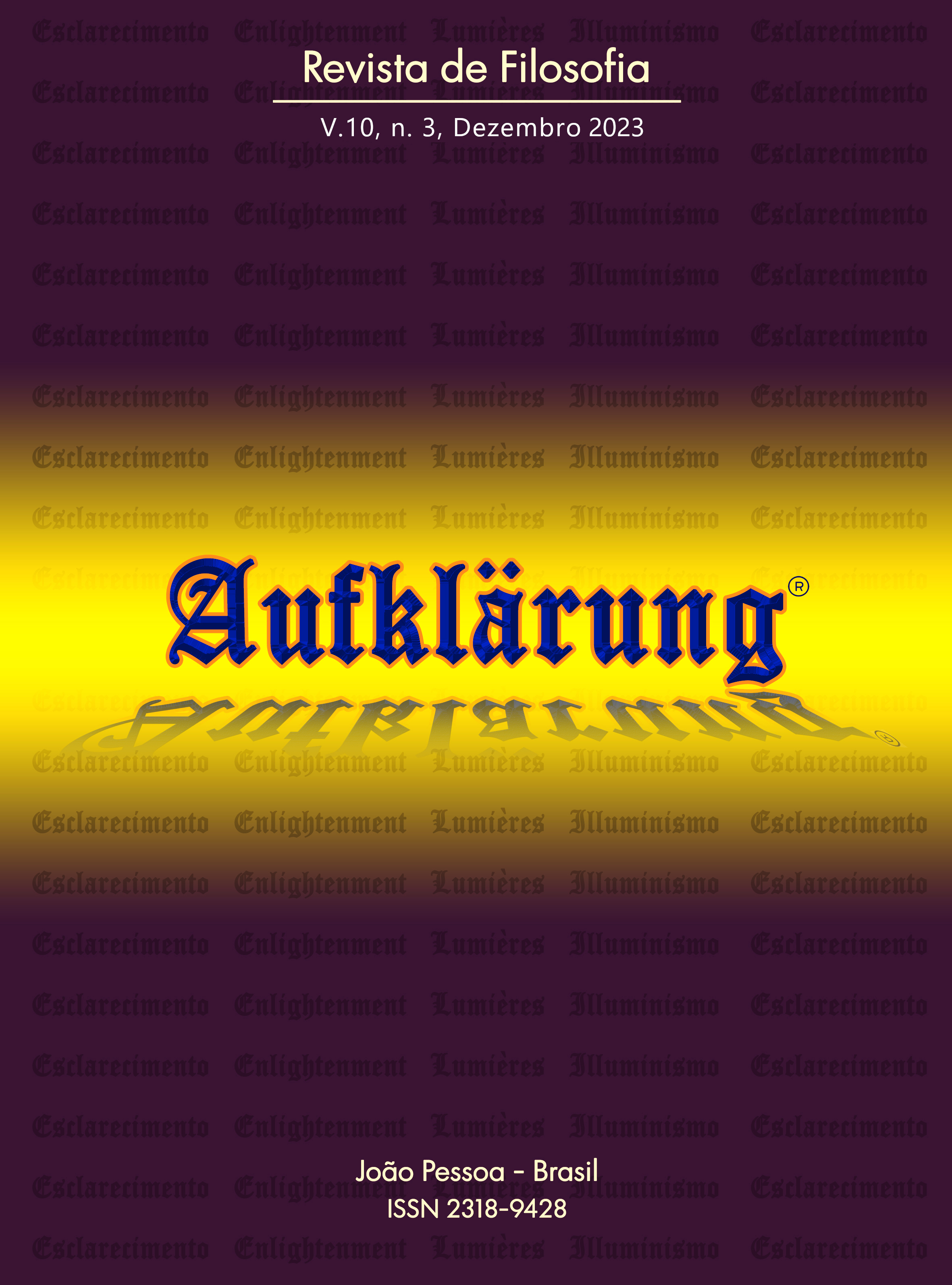The education is an idea, for Kant: the unity of the doctrine and art of eductation concepts
DOI:
https://doi.org/10.18012/arf.v10i3.65789Keywords:
Education, Idea, Doctrine of education, Art of educating, PedagogyAbstract
In Kantian writings on the theme of education (Erziehung), we can see that the philosopher refers to the educational process in different ways, whether as an art of educating (Erziehungskunst), as training (Bildung), as a doctrine of education (Erziehungslehre ) or as an idea (Idee). This multiplicity of notions is by no means arbitrary, but each one is related to each other and has as its central point the concept of education as an idea, that is, a concept of reason that is the measure of what is intended, as well as the condition of possibility of the educational experience itself. It is thus, for all cases, a maximum as a measure in consideration of other smaller magnitudes. In the recomposition of the concept of education, the idea is the regulating principle of the theory or doctrine of education, art is certainly the ability that will develop in concreto what was reasoned in the doctrinal canon. That said, education, as an idea, assumes the regulatory function of the pursuit of ends, it being the end of the doctrine of education and for the art of educating that is for pedagogy (Pädagogik) it is the maximum degree of perfection to which the education of the present time must be compared.
Downloads
References
KANT, Immanuel. Antropologia de um ponto de vista pragmático. Tradução de Clelia Aparecida Martins. São Paulo: Iluminuras, 2006.
KANT, Immanuel.A paz Perpétua e outros opúsculos. Tradução de Artur Morão. Lisboa: Ediçoes 70. 2016a.
KANT, Immanuel. Crítica da razão pura. 5. ed. Tradução de Manuela Pinto e Alexandre Morujão. Lisboa: Fundação Calouste Gulbenkian, 2010.
KANT, Immanuel. Crítica da faculdade do juízo. Tradução de Fernando Costa Mattos. Petrópolis: Vozes: Bragança Paulista: Editora Universitária São Francisco, 2016b.
KANT, Immanuel. Lições de ética. Tradução de Bruno Cunha et al. São Paulo: Editora Unesp, 2018.
KANT, Immanuel. Lições sobre a doutrina filosófica da religião. Tradução de Bruno Cunha. Petrópolis: Vozes. Bragança Paulista: Editora Universitária São Francisco, 2019.
KANT, Immanuel. Lógica. Tradução de Guido António de Almeida. Rio de Janeiro: Tempo Brasileiro, 1992.
KANT, Immanuel. Œuvres Philosophiques. Tradução de Ferdinand Alquié et al. Tome I. Paris: Librairie Gallimard, 1980.
KANT, Immanuel. Œuvres Philosophiques. Tradução de Ferdinand Alquié et al. Tome II Paris: Librairie Gallimard, 1985.
KANT, Immanuel. Œuvres Philosophiques. Tradução de Ferdinand Alquié et al. Tome III. Paris: Librairie Gallimard, 1986.
KANT, Immanuel. Reflexões de Antropologia: Sobre o sentimento de prazer e desprazer. 2º livro. Tradução de Daniel Omar Perez. São Paulo: Instituto Langage. 2021.
KANT, Immanuel. Réflexions sur l’éducation. Tradução de Alexis Philonenko. Paris: Vrin, 2000.
KANT, Immanuel. Sobre a Pedagogia. Tradução de Francisco Cock Fontanella. Piracicaba: Editora Unimepe,1996.
KANT, Immanuel. Werkausgabe. Werke in zwölf Bänden. Suhrkamp. Bänden von I bis XII. Frankfurt, 1968.
PHILONENKO, Alexis. Introduction: Kant et le problème de l’éducation. In: KANT, Réflexions sur l’éducation. Traduction, introduction et notes par A. Philonenko. Paris: Vrin, 2000.
Additional Files
Published
How to Cite
Issue
Section
License

This work is licensed under a Creative Commons Attribution 4.0 International License.
Journal general policy
1.This journal works under a Creative Commons License aplied to online journals. That icence can be read in the following link: Creative Commons Attribution 4.0 International (CC BY 4.0).
2.Accordingly to this License, a)the journal declares that authors hold the copyright of their articles without restrictions, and they can archieve them as post-print elsewhere. b)the journal allow the author(s) to retain publishing rights without restrictions.
Metadata Policy for information describing items in the repository
1. Anyone may access the metadata free of charge at anytime.
2.The metadata may be re-used in any medium without prior permission, even commercial purposes provided the OAI Identifier or a link to the original metadata record are given, under the terms of a CC BY license refered for the Journal.







































